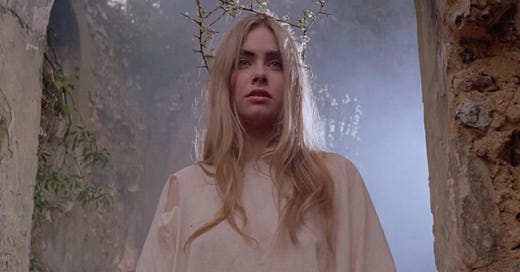October is here, and if you’re a nerd like me, you love to "theme" your spooky season viewing. Last year, with the release of Hocus Pocus 2 and my reimagining of Häxan: Witchcraft Through the Ages, it was all about #SeasonOfTheWitch. This year, I’m diving into the depths of #FolkHorror, starting with a brilliant primer on the genre, Woodlands Dark & Days Bewitched: A History of Folk Horror. Horror documentaries are my go-to in Halloweentown, and this one hit the spot. 🤓🍿🖤
If you haven’t seen the trailer yet, take a moment to check it out—this documentary is a must-watch for folk horror fans, whether you're already a seasoned cinephile of the genre or seeking to learn more and expand your repertoire.
🍂 Watch the Trailer 🍂
Keep reading with a 7-day free trial
Subscribe to 50 Shades of Jaye to keep reading this post and get 7 days of free access to the full post archives.





